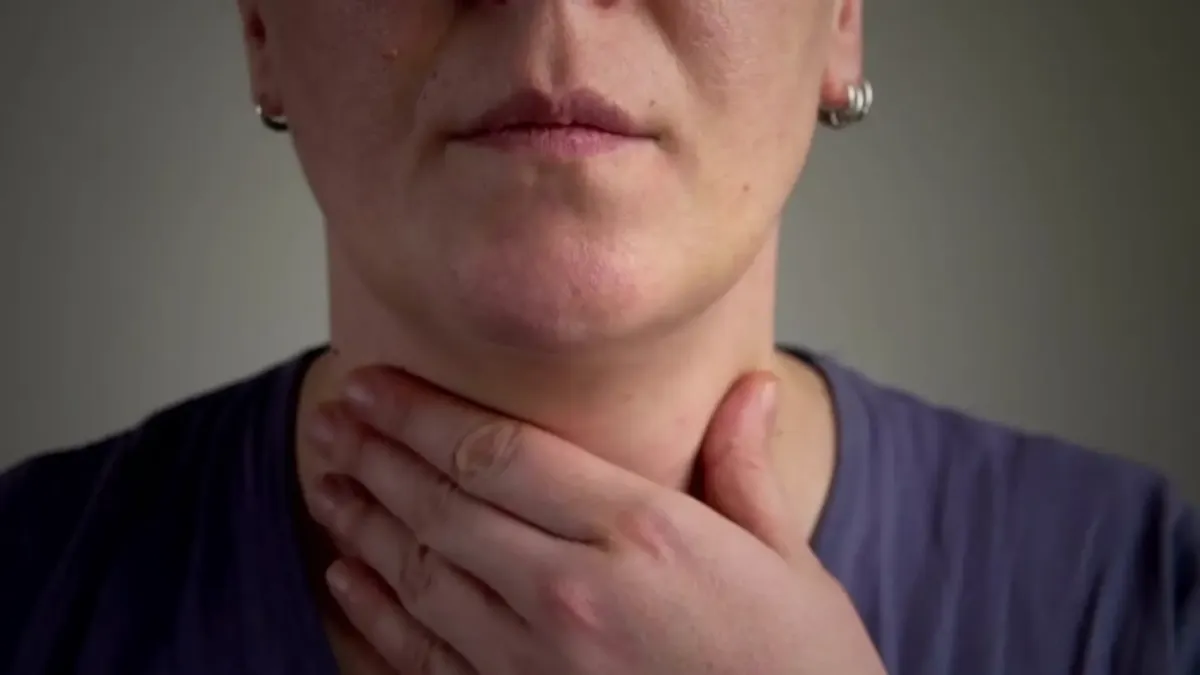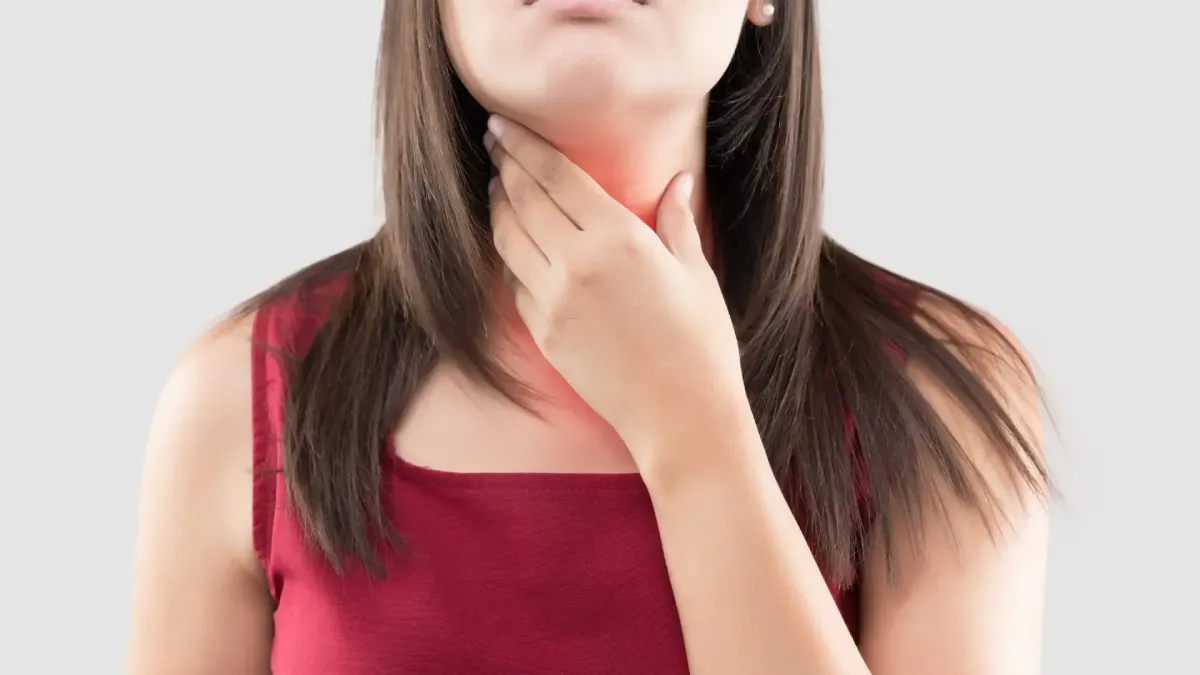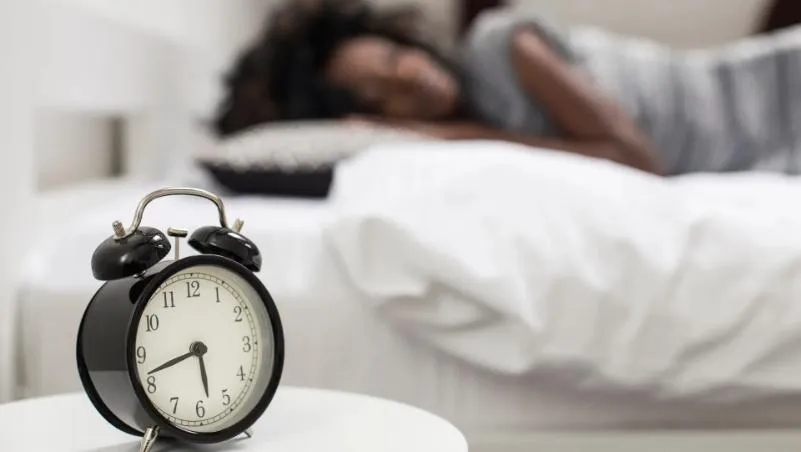MENU
BLOG

Treating Sex Hormone Imbalances
Sex hormones are that are involved in the regulation of sexual development and reproduction. The primary sex hormones are estrogen, progesterone, and testosterone. Men and women have all of these, just in different amounts and ratios...
When men and women have low energy caused by an imbalance in their sex hormones, it is usually from different hormones. For men, it is usually due to a testosterone deficiency. For women, it is usually due to estrogen and/or progesterone imbalances.

Sex Hormones & Low Energy
The symptoms of menopause are no joke. They are incredibly uncomfortable and can change the quality of your life significantly. When a woman comes to me with menopausal symptoms, she is usually pretty desperate for relief. I use both natural and pharmaceutical therapies to get her that relief.

Treating Thyroid Disease
I am a big believer in natural medicine. It can be very powerful and work very well. I prefer to use it as long as the natural treatment is safe and strong. Unfortunately, when treating low thyroid, we usually need both the natural and the prescription treatments. In college, I learned from playing the card game euchre not to “send a boy to do a man’s job.” In medicine, this means using the treatment that you know will work. If I think a natural treatment will work, but I know that a medication will work, I should use the medication as long as there are no significant side effects. This is because I want to make sure you get results right away so that you can get your life back

Treating Thyroid Disease
Thyroid disease is one of the most common health problems we face today. The majority of people with thyroid dysfunction have hypothyroidism. Hypothyroidism (“hypo” means low) is a condition where the amount of thyroid hormone in your body is less than what is needed for optimal function. According to the American Thyroid Association, more than 12 percent of the US population will develop a thyroid condition during their lifetimes, and more than half will be unaware that they have a problem. Women are five to eight times as likely as men to develop thyroid problems.

Advanced Adrenal Recommendations
Last week, I went over the recommended supplements to treat Adrenal Fatigue. This week I’ll go over adrenal recommendations as well as a plan to reduce stressors.
Treating the physical symptoms is only the first step. Once you start to feel better, it’s important to begin addressing the causes of the problem: the sources of stress that compromised your adrenals in the first place.

Testing & Supplement Options for Adrenal Fatigue
Last week we discussed the main symptoms as well as the causes of adrenal fatigue. This week, I will focus on testing and supplement options for treatment.
If you have most of the symptoms listed last week, you probably have adrenal fatigue. However, how do we test for adrenal dysfunction?

How Adrenal Fatigue Causes Chronic Fatigue
This week I will discuss how adrenal fatigue is a primary cause of chronic fatigue.
It's estimated that up to 80% of adults experience adrenal fatigue during their lifetimes, yet it remains one of the most under-diagnosed illnesses in the United States. Conventional medicine does not yet recognize adrenal fatigue as a distinct syndrome

Food Allergies & Low Energy
Food allergies can cause almost any symptom the body can manifest, including low energy. The gastrointestinal tract maintains a delicate balance of good bacteria, specialized immune cells, and various neurological and hormonal activities. In fact, 80% of your immune system resides in your gut, so anything you put in your mouth can trigger a reaction. Once your digestive system detects what it considers a “foreign particle,” your immune system reacts, and the inflammation that follows creates pain and dysfunction.

Food and Your Energy
Food is a touchy subject, especially if you’re not feeling well. We have a lot of emotional attachments to it, and it can give us joy at times when nothing else can. However, food allergies play a significant role as a cause and contributor to fatigue and, as a doctor, I have seen amazing improvements in the health of my patients when they change their food choices.

When Sleep Is a Problem
Jenny slept fine until her car accident. Suddenly, she had a hard time falling asleep and was up multiple times during the night. Her energy during the day decreased so dramatically that she had to take naps under her desk at work to get through the day. Her memory got worse, and she started losing her hair. The accident had stressed her adrenals and thyroid, upsetting her sleep and causing fatigue.
Do you have trouble sleeping? If so, you are not alone. Poor sleep is always a sign that something is wrong with your health. Sleep is a foundational requirement for good health, and sleep problems will nearly always contribute to low energy. Low energy can be caused both by a lack of sleep or by poor quality of sleep. Either you aren’t sleeping much at all, or you are sleeping plenty of hours, but you wake up still feeling tired and unrefreshed. In this article we are going to tackle how much sleep you need, when you should be sleeping, why sleep is important, and what to do if you have sleep problems.
How Much Sleep Do I Need?
Approximately fifty to seventy million Americans suffer from sleep disorders. It is hard to pinpoint a more exact number because most people don't report sleep problems to their physicians, and most physicians don’t take the time to ask about sleep.
Getting seven to nine hours of deeply restorative sleep is a good goal. Sleeping less than seven just isn’t enough for most people. However, sleeping more than nine hours is also associated with poor health, so there seems to be a “sweet spot.”
When Should I Sleep?
As humans, we should be awake during the day and asleep at night. Sleeping at night rejuvenates our bodies and minds and promotes healing. Being tired during the day and energized at night indicates a circadian rhythm dysfunction.
A circadian rhythm dysfunction means your body doesn’t know whether it’s day or night. You’ll know this is the case if you are often sleepy during the day and wakeful at night. Circadian rhythms are physical, mental, and behavioral changes that roughly follow a 24-hour cycle, primarily in response to environmental light and darkness.
Why is Sleep So Important?
Poor sleep interferes with nearly every biochemical process in the body. For example, while we sleep, our brain cells shrink by about 60 percent, which allows for more efficient waste removal. Sleep is also critical for balancing hormone levels, including melatonin. Melatonin is not just a “sleep hormone” but also an anti-cancer hormone, inhibiting the proliferation of a wide range of cancers. Poor sleep also inhibits leptin, the satiety (“I’m full”) hormone, which can lead to weight gain.
Chronic sleep deprivation drives up inflammation, impairs blood sugar regulation, and raises the risk for many types of chronic disease. A study conducted by researchers at Harvard University found that inadequate sleep is associated with the following.
Weight gain: People sleeping less than six hours per night have a higher body mass index. Poor sleep has been shown to cause increased insulin, decreased leptin (the satiety hormone), and increased ghrelin (the hunger hormone); inadequate sleep is now considered a risk factor for obesity and type 2 diabetes.
Heart disease: There is growing evidence of a connection between obstructive sleep apnea and heart disease; poor sleep has immediate detrimental effects on blood pressure as well.
Mood disorders: Chronic sleep issues are associated with depression, anxiety, and mental distress.
Stress: Poor sleep results in elevated cortisol levels.
Shortened life expectancy: Data from three large cross-sectional epidemiological studies revealed sleeping five hours or less per night increased the risk of death by roughly 15 percent.
What do I do If I Have Sleep Problems?
To recreate your natural sleep rhythm, you need to address the causes:
Poor sleep habits (sleep hygiene)
Hormone imbalances (adrenal, thyroid, sex hormones)
Nutritional deficiencies (vitamin B12, vitamin D, iron, and magnesium)
Chronic infections (Babesia, Bartonella, Borrelia, and parasites)
These causes of sleep issues are also some of the causes of low energy!
You may be surprised to hear that besides changing sleep habits, I have more success getting people to sleep by supporting their adrenals, thyroid, vitamin B12, and iron in the morning than I do by giving them anything at night! This is because these hormonal and nutritional deficiencies affect the circadian rhythms.
Let’s go back to Jenny, the story I told at the beginning of this post, and how her sleep issues began after she had a car accident. The stress of the car accident (both physically and emotionally) triggered a big release of cortisol from her adrenal glands. This release ended up depleting her adrenals and her thyroid, and resulted in decreased energy and increased sleep problems.
The best approach to treating sleep problems is to identify and remove the cause. Inside the free Step 1: Find Your Causes course, there is a section to help you assess your sleep and identify the causes. Register for the course today, and take action on identifying the causes of not only your sleep, but also your low energy as a whole.
Take Action
Sleep problems affect a large proportion of the U.S. population and are a serious contributor to many chronic illnesses, including obesity, type 2 diabetes, heart disease, and mental illness. Poor sleep increases inflammation, drives up cortisol levels, and wreaks overall havoc with hormones and metabolism. Sleep problems range from simply not getting enough sleep to experiencing poor quality, non-restorative sleep. Patients typically underreport sleep problems to their doctors, and doctors typically neglect to inquire.
Good, restorative sleep is important to your health. Our widespread lack of appreciation for the importance of sleep has serious implications not only for you as an individual, but for public health – meaning our health nationwide.
Join the conversation, share your story, and get support from people like you in our EnergyMD Facebook Group
Register for the free Step 1: Find Your Causes Course
Share this article with your friends and loved ones on social media and help me achieve my mission of helping 1 million people increase their energy!

A safe space for all.
We're LGBTQ+ supportive
Copyright (c) EnergyMD







